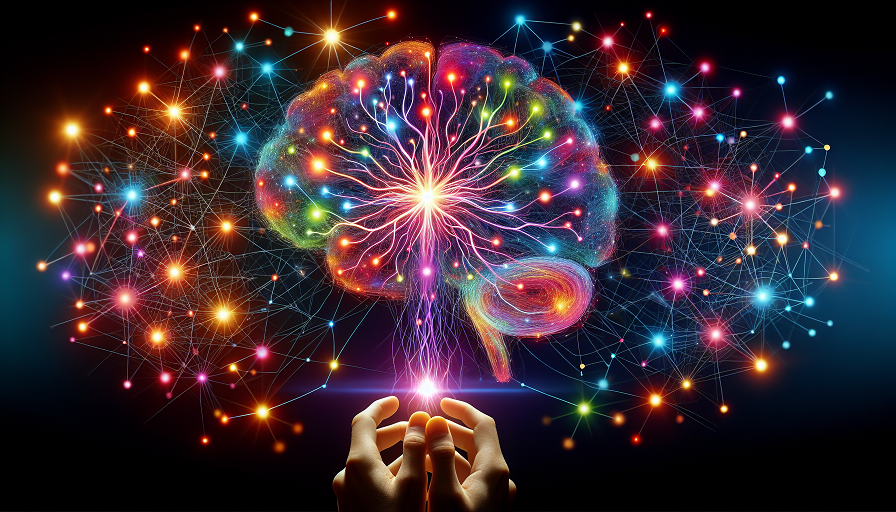
Poker isn’t just a game of luck and bluffing—it’s a mental workout disguised as a card game. Learning the rules of poker challenges your memory, enhances decision-making, and builds emotional resilience. Whether you’re playing Texas Hold’em or Omaha, understanding the strategies and probabilities involved can sharpen your brain in unexpected ways.
Contents
Understanding Probability and Strategic Thinking
Poker is a game of calculated risks and probabilities. Learning the rules forces you to think strategically, analyze situations, and evaluate outcomes. These mental gymnastics are great for your brain, teaching you skills that extend far beyond the poker table.
Mastering the Odds
Poker rules require players to understand probabilities: the likelihood of drawing a winning card, the odds of your hand beating others, and when to fold. This constant mental math sharpens your ability to calculate risks and make informed decisions. It’s like giving your brain a mental abacus to work with.
Weighing Risk vs. Reward
Every move in poker involves weighing potential gains against possible losses. Should you call, raise, or fold? Learning the rules helps you practice these evaluations, strengthening decision-making skills that apply to real-life scenarios, from financial planning to daily problem-solving.
Thinking Several Steps Ahead
Poker isn’t just about the current hand—it’s about anticipating your opponents’ moves and planning your responses. This forward-thinking sharpens your prefrontal cortex, the part of the brain responsible for strategic planning and impulse control.
Improving Memory and Information Retention
Learning the rules of poker—and applying them effectively—requires a sharp memory. From remembering your hand and the community cards to tracking opponents’ behaviors, the game is a mental juggling act that strengthens your brain’s memory circuits.
Tracking Patterns
Poker players often look for patterns in their opponents’ actions. Does someone bet aggressively with a weak hand? Learning to spot these tells requires recalling past behaviors and analyzing them in the moment, enhancing both short-term and long-term memory.
Keeping Rules and Strategies in Mind
With multiple poker variants like Texas Hold’em, Omaha, and Stud, memorizing the rules and strategies for each version keeps your brain active. This mental exercise strengthens neural connections, much like practicing a musical instrument or learning a new language.
Recognizing Subtle Changes
Poker also sharpens your ability to notice small details—like a slight hesitation before an opponent bets. These subtle cues require keen observational skills and the ability to retain and interpret information under pressure.
Developing Emotional Intelligence and Resilience
Poker isn’t just about the cards you’re dealt; it’s about how you handle the highs and lows. The emotional discipline required to stay cool under pressure builds resilience and emotional intelligence, two critical components of mental health.
Managing Stress
Bluffing your way through a high-stakes hand can spike adrenaline, but learning to manage that stress builds emotional resilience. Poker teaches you to control your emotions, even when the stakes are high—an invaluable skill in daily life.
Reading Opponents
Successful poker players excel at reading body language, tone, and expressions to gauge their opponents’ confidence—or lack thereof. This ability to interpret nonverbal cues sharpens emotional intelligence, helping you understand others better both at the table and in life.
Handling Loss Gracefully
Losing is an inevitable part of poker, but it teaches you resilience. Learning to accept setbacks and adapt your strategy without losing your composure is a life skill that poker instills over time.
Building Focus and Patience
Poker requires sustained attention and the ability to play the long game—skills that modern distractions often erode. By learning poker, you can retrain your brain to focus deeply and think patiently.
Staying Present
One misstep in poker—like missing an opponent’s tell or miscalculating odds—can cost you the game. This demand for present-moment awareness strengthens your ability to concentrate on tasks without succumbing to distractions.
Practicing Delayed Gratification
In poker, the biggest wins often come to those who wait. Learning to fold and wait for a stronger hand teaches patience and the ability to prioritize long-term rewards over short-term gratification.
Learning Through Repetition
Mastery of poker rules and strategies comes through practice. This repetition reinforces neural pathways, improving your ability to focus for extended periods—a skill transferable to work, study, and personal projects.
Practical Tips for Starting Your Poker Journey
Ready to give poker a shot? Start by learning the basics and gradually build your skills. Here are some practical tips to help you get started.
- Focus on One Variant: Begin with a popular version like Texas Hold’em before exploring other variants.
- Use Online Resources: Tutorials, videos, and practice games can help you grasp the rules and develop strategies.
- Play with Friends: A friendly game lets you practice without the pressure of high stakes.
- Keep a Poker Journal: Track your wins, losses, and lessons to refine your approach over time.
- Learn from Mistakes: Each misstep is an opportunity to improve your strategy and decision-making.
Joining Online Poker Communities
Engaging with poker communities, both online and offline, can enhance your learning. Sharing tips, discussing strategies, and analyzing games with others can accelerate your mastery of the rules and help you stay motivated.
Nootropics: A Brain Boost for Poker Players
For those looking to sharpen their focus and decision-making further, nootropics—brain supplements designed to enhance cognitive function—can provide an edge. By improving memory, concentration, and mental clarity, nootropics complement the mental workouts poker provides, giving you the extra stamina needed for long games.
The Takeaway: Poker as Brain Training
Learning the rules of poker isn’t just a fun pastime—it’s a full-brain workout. From sharpening memory and decision-making to building emotional resilience and patience, poker challenges your mind in ways few other activities can. Whether you’re a casual player or aiming to master the game, the cognitive benefits are undeniable.
So, shuffle the cards, practice your poker face, and dive into the strategic world of poker. Your brain will thank you for the workout—and who knows, you might even pick up a life skill or two along the way.

